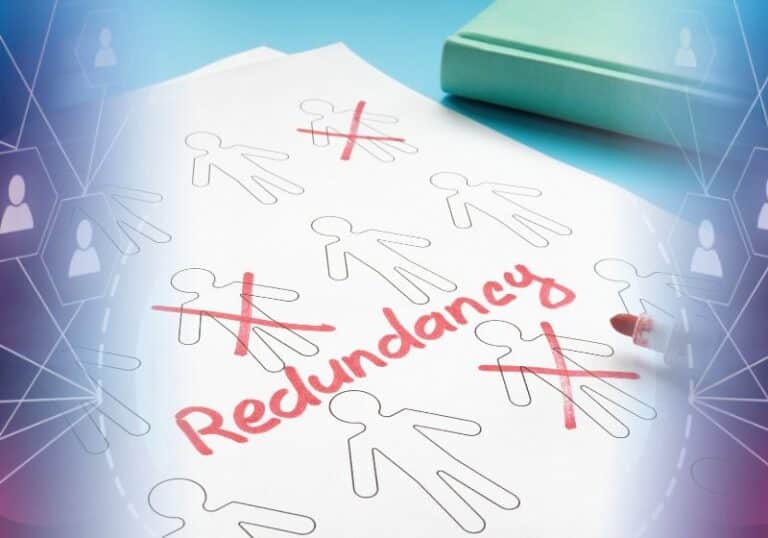Anticipating the Festive Season and Handling Sexual Harassment

It’s that time of year again when businesses are planning their annual Christmas events—booking venues and organising entertainment, and planning for a memorable end to the year. The festive season represents a phase of celebration, reflection, and planning for businesses. Yet, it’s also a period that sees an unfortunate rise in misconduct cases, particularly related to inappropriate behaviour during office parties. As HR professionals, we at HR:4UK, have witnessed this trend and note the increasing risks as celebrations intensify.
The new “Preventative Duty” law which came into effect on 26th October now necessitates employers proactively play a role in stopping sexual harassment, thus strengthening workplace safety standards. This duty applies to all business environments, including office gatherings such as Christmas parties.
Understanding Sexual Harassment and the Preventative Duty
Sexual harassment encompasses any unwanted sexual conduct, which can range from comments and jokes to more serious actions such as unwarranted advances or physical contact. The Preventative Duty necessitates businesses to proactively address potential risk areas to shield their employees from such behaviour. The “workplace” expands beyond the office environment to include any place or event where colleagues meet such as office parties and team outings.
The interpretation of “reasonable” steps to prevent harassment varies per business, based on aspects such as the company’s size, resources, industry, and overall work environment. The Equality and Human Rights Commission has published guidelines to help businesses comply with these rules. Here are some proactive measures HR:4UK recommends to ensure your festive season aligns with these newfound obligations.
Steps to Ensure a Safer Celebratory Season
Assess Risks: Regularly review past incidents or feedback from team members about harassment to detect specific risk factors such as venues with limited transport options or events with unrestricted alcohol.
Plan for Lower-Probability Events: Contemplate alternatives to traditional evening events such as team lunches or daytime activities (e.g., bowling, guided tours). For parties, consider limiting alcohol availability, setting early closures, and selecting venues with convenient transport to ensure staff safety.
Establish Clear Guidelines and Training: Ensure that your anti-harassment, equality, and disciplinary policies are up-to-date and easily accessible, with explicit references to the Preventative Duty. Conduct refresher training before your event to re-emphasise expected behaviour standards, and demonstrate that these norms apply to all company gatherings.
Introduce a Sexual Harassment Policy: If not already in place, implement a policy that covers remote and off-site work settings, addresses third-party harassment, and provides explicit reporting procedures. An effective policy should define harassment, detail the Preventative Duty, and explain the process for reporting incidents and subsequent actions.
Foster Reporting and Support: Make it as easy as possible for employees to report incidents. Methods like anonymous reporting or a dedicated contact person for reporting harassment can ease the process. Managers should also be trained to respond swiftly and supportively to any reports.
Promote Bystander Training: Encourage staff to identify harassment and feel confident to intervene or voice concerns. This training helps cultivate a workplace culture that discourages inappropriate behaviour and encourages respect.
The Bigger Picture: Recent Legislative Changes
The political landscape is shifting towards further protecting employee rights. For instance, the new Employment Rights Bill proposes changes that could enhance the Preventative Duty, potentially requiring employers to take “all reasonable steps” to prevent sexual harassment. This bill also introduces liability for third-party harassment, holding employers accountable in situations where, for instance, a client harasses an employee and the employer has failed to mitigate this risk.
The Government’s proposed amendments to whistleblowing laws include adding sexual harassment as a specific “relevant failure,” thus providing additional protections to employees who disclose such incidents. Whether these amendments are enacted or revised, it is clear that the expectations for preventing and handling workplace harassment are evolving, with an emphasis on increasing responsibility.
In conclusion, as employers plan for festive gatherings, it’s a timely opportunity to review policies, provide training, and reinforce a culture of respect and safety. At HR:4UK, we believe that creating a workplace free from harassment is an important, ongoing commitment that benefits everyone. Taking steps now to ensure a safe and inclusive celebration will help protect your team, promote positive interactions, and set the tone for the year ahead.
Angela Clay
A qualified employment law solicitor and our managing director, Angela has unparalleled legal expertise and decades of experience and knowledge to draw from. She’s a passionate speaker and writer that loves to keep employers updated with upcoming changes to legislation, and is a regular guest speaker on BBC Leicester Radio.




